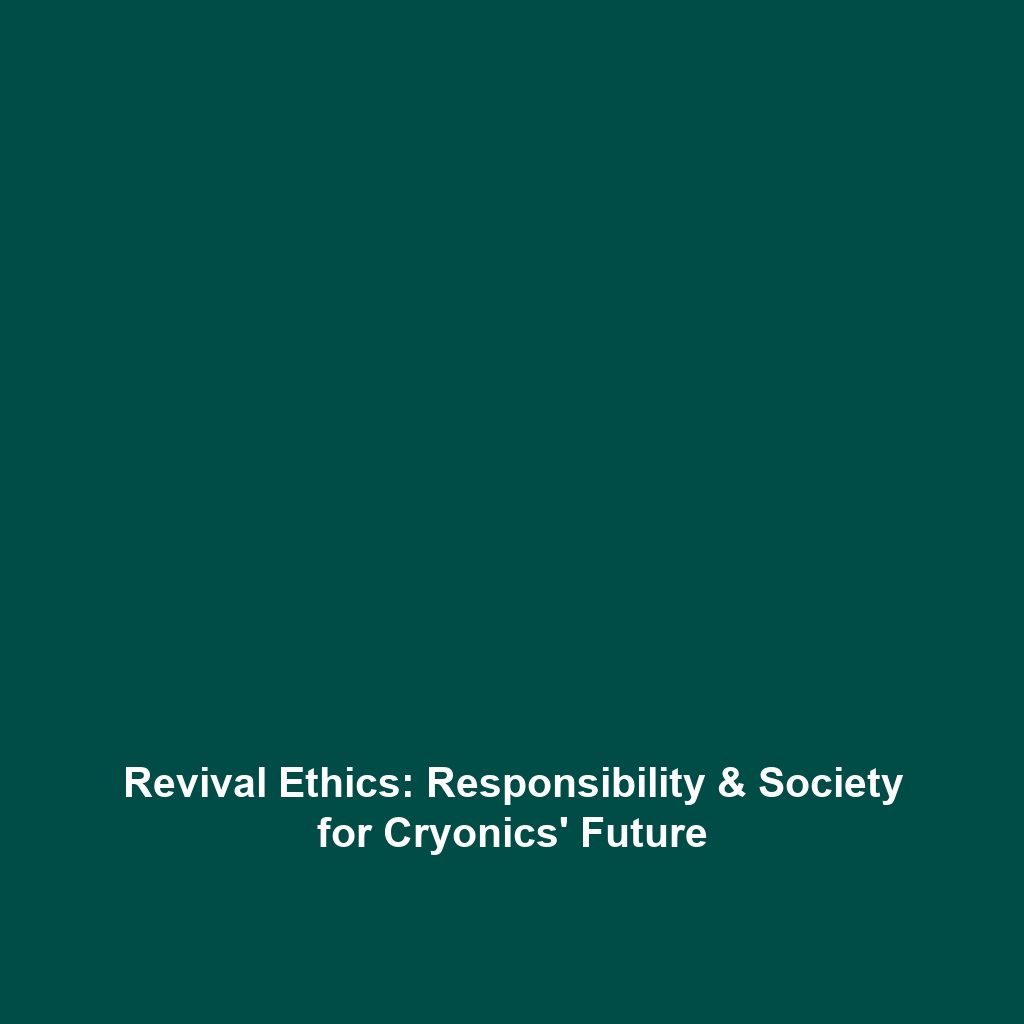Revival Ethics: Responsibility and Societal Integration of Cryonically Preserved Individuals
Introduction
Revival ethics delves into profound questions concerning the future of cryonically preserved individuals, notably, who will be responsible for their revival and what will their place be in society? These critical inquiries hold significant implications not only for the individuals involved but also for the broader discourse in Cryonics & Life Extension. As science strides toward potentially feasible methods of reviving those preserved post-mortem, it is paramount to address the ethical responsibilities and societal challenges that accompany this revolutionary prospect. Understanding revival ethics is essential to fully grasping the broader implications of Cryonics & Life Extension in contemporary society.
Key Concepts
Revival ethics encapsulates several important concepts within the realm of Cryonics & Life Extension. The following principles are critical to understanding its significance:
- Accountability: Determining who bears the burden of responsibility for the revival process – be it scientists, institutions, or societies.
- Informed Consent: Addressing the necessity for clear consent from individuals who opt for cryonics, especially regarding potential revival.
- Societal Acceptance: Exploring how revived individuals will be integrated into a society that has evolved in their absence.
Applications and Real-World Uses
The implications of revival ethics extend into various practical applications within Cryonics & Life Extension. For instance:
- Legal Frameworks: Developing legal guidelines that safeguard both the rights of the preserved individuals and the responsibilities of those reviving them.
- Healthcare Policies: Shaping healthcare systems and policies that accommodate individuals revived from cryonic preservation.
- Public Awareness: Educating the public about the realities and ethical considerations surrounding cryonics and revival.
Current Challenges
Exploring revival ethics reveals several challenges that must be addressed to advance the field of Cryonics & Life Extension:
- Scientific Uncertainty: Lack of empirical evidence regarding the methods and feasibility of revival.
- Ethical Dilemmas: Navigating the moral complexities posed by resurrecting individuals and their potential societal impacts.
- Resource Allocation: Challenges in determining how resources will be allocated for revival efforts, including financial implications.
Future Research and Innovations
As research in revival ethics progresses, several innovations and next-generation technologies are on the horizon. Potential focal points include:
- Advanced Cryopreservation Techniques: Techniques that enhance cellular integrity during the freezing process.
- Neuroscience Advances: Understanding better the brain’s unique structures and functions that could inform revival processes.
- Ethical Research Frameworks: Development of ethical guidelines tailored to future scenarios involving revived individuals.
Conclusion
In summary, revival ethics presents complex questions regarding the responsibilities and integration of cryonically preserved individuals back into society. Understanding these ethical considerations is crucial for paving the way forward in the field of Cryonics & Life Extension. Researchers, ethicists, medical professionals, and policymakers must collaborate to address these topics comprehensively. For those interested in diving deeper, we invite you to explore our related articles on advancements in cryonics and innovative life extension methods.
